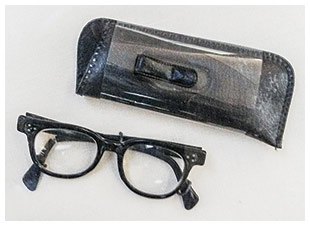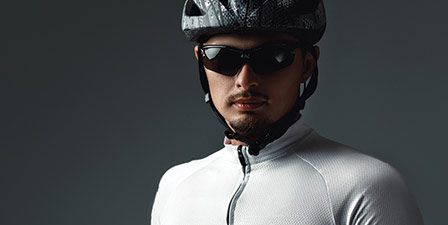 I think it’s a fair assessment that optical history doesn’t get its due in popular culture. Other than the wonderful Optical Heritage Museum in Southbridge, there really isn’t an institution to preserve and promote the spectacular history of spectacles, and even they’re off the radar of the pop-consciousness. After all, The Rock and Roll Hall of Fame got a shout-out on “Home Improvement.” The Heritage Museum got a shout-out… well, here.
I think it’s a fair assessment that optical history doesn’t get its due in popular culture. Other than the wonderful Optical Heritage Museum in Southbridge, there really isn’t an institution to preserve and promote the spectacular history of spectacles, and even they’re off the radar of the pop-consciousness. After all, The Rock and Roll Hall of Fame got a shout-out on “Home Improvement.” The Heritage Museum got a shout-out… well, here. It’s not too surprising—glasses only really became “cool” in the last two decades or so, and beyond the fashion and optical worlds, most people still probably tend to think of glasses in the basic paradigm of “metal, plastic, no-frame, Harry Potter.” The result of this, though, is that you can run into some really fantastic stuff in unexpected places—for example, Martin Luther King Jr.’s hipster glasses at the Atlanta Airport.
I recently had a layover in Atlanta with more time to kill than I’d have liked and found myself wandering the terminal. That was where I found, to my surprise, a series of display cases laid out along the concourse containing several personal possessions of MLK. There was no special attention drawn to them, no fanfare; they could have been promotional displays for some of the stores in the airport. But here, amidst the overpriced menswear shops and two dozen McDonalds, were items belonging to one of America’s most iconic and influential figures. Here was a suit he wore while meeting with LBJ to discuss the Civil Rights Act; here was a personal transistor radio; here was a simple watch; and here were his glasses.
When I first realized what I was looking at, I figured they must have been readers. After all, I, like countless Americans, grew up seeing dozens of photos of him in textbooks and watching numerous speeches in class, and he isn’t bespectacled in a single one of them. So he must’ve been experiencing the early stages of presbyopia, eh? He was 39 when he was assassinated. Or perhaps he was always farsighted. Or maybe he was nearsighted but kept the glasses out of the range of cameras, afraid of the stigma that glasses still carried? Maybe he didn’t want to draw too much of an association to Malcolm X?
The truth is far more amusing.
Per the information card displayed along with the glasses: “Although he didn’t need them, Martin Luther King Jr., thought glasses made him look ‘distinguished.’”
So there you have it, ladies and gentlemen. MLK: civil rights leader, pastor, hero, hipster. It’s a humanizing thought that one of the most famous orators of the 20th century thought he needed glasses to make him seem distinguished. The big question, of course, is when did he wear them, and who was he trying to look distinguished for? He certainly wasn’t wearing them for the masses of people who saw him speak during the great speeches of his life. Was it his friends and family? Did the man who rallied countless Americans to the cause of equal rights feel like he had to look more distinguished at Sunday barbecues? Did he have an alternate “pastor persona” when he preached at Dexter Avenue? We may never know. It’s still an amazing insight—one of the things that millions of travelers through Atlanta’s airport may not have gotten to see were optical history treated with a bit more reverence; and now, the next time you see someone wearing big plastic plano glasses, you can at least comfort yourself with the knowledge they’re following in the tradition of a great man.













